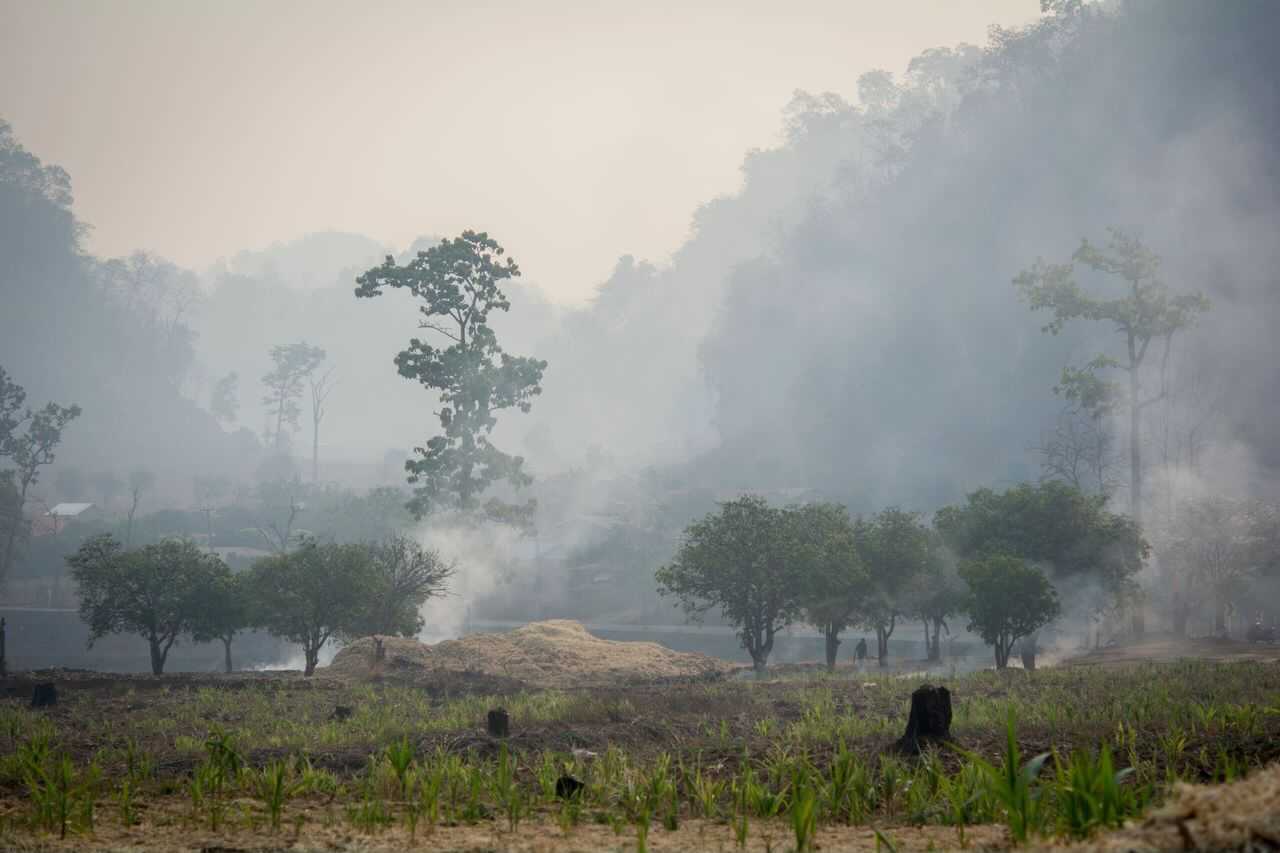
Northern Thailand has been, for the past few weeks, shrouded in smog and haze driving air quality and pollutant indexes to global highs. Much of the blame has been placed at the hands of local communities and slash and burn farming methods. However, recent findings and testimonials prove just how complex the situation is and how little blame should actually be attributed to local farmers.
Officials inspecting the area by helicopter earlier this week have reported seeing some locals illegally setting fire to the forest between the Chiang Klang and Song Khwae districts of Chiang Mai.
One man was arrested on suspicion of illegally setting fires in the forest reserves of Doi Suthep, allegedly while under the influence of alcohol, according to an official at the Prevention and Solution Command Center of PM2.5 in Chiang Mai province.
Haze and fire have now to spread to at least 17 provinces, with a total of 926 hotspots – mostly in forest reserves, conservation areas, and national parks.
Of that, at least 300 hotspots have been detected in Chiang Mai, affecting over 30,000 people with respiratory issues, eye inflammation, and dermatitis. According to local news, 60 of the fire hotspots have yet to be extinguished.
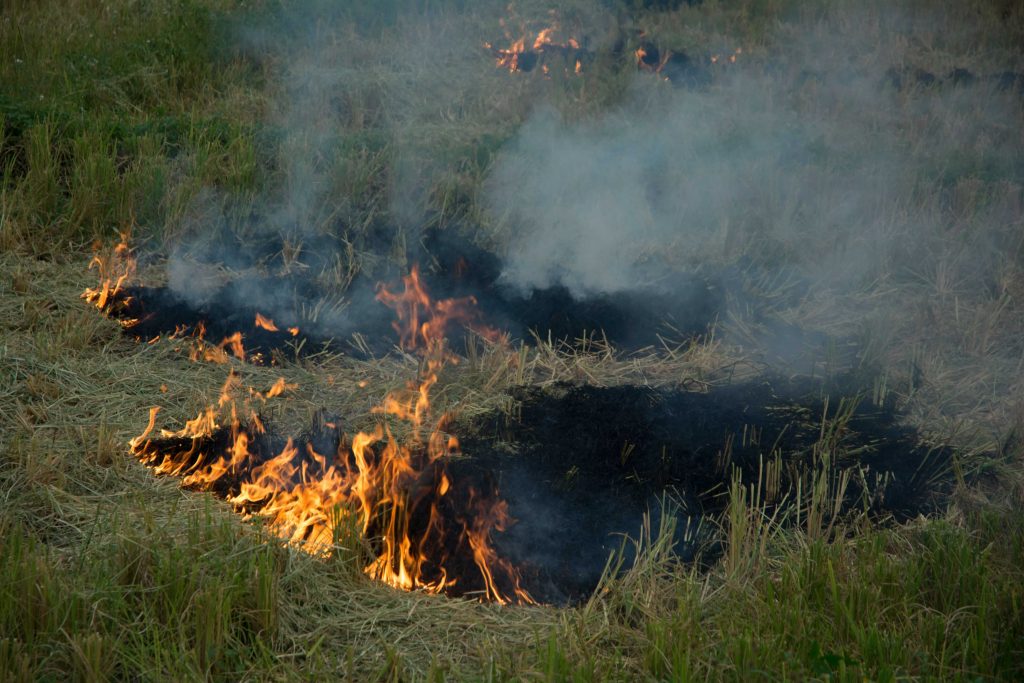
Illegal forest burning
Illegal forest burning by locals continues to a primary concern in the crisis, with government organizations stepping up to intensify control efforts in the area.
But this is hardly a new phenomenon. Local authorities and communities have been aware of the issue for years.
“There has been a lot of debate going around as to where, why, and who is behind this, for years, and it hasn’t changed,” said Tara Buakamsri, Country Director of Greenpeace Thailand. “We see multiple arrests of individuals who have allegedly caused this. Whether that is true or not, all are processed and investigated under the law. And there are, in fact, many articles and statements in the law addressing this issue.”
However, illegal forest burning is not as straightforward as it may seem, and is much more multi-layered than it looks.
Reports pointing to locals and communities illegally trespassing and setting fires in the forests in the north, according to Tara, are perhaps too superficial. They do not address the true intricacy of the problem.
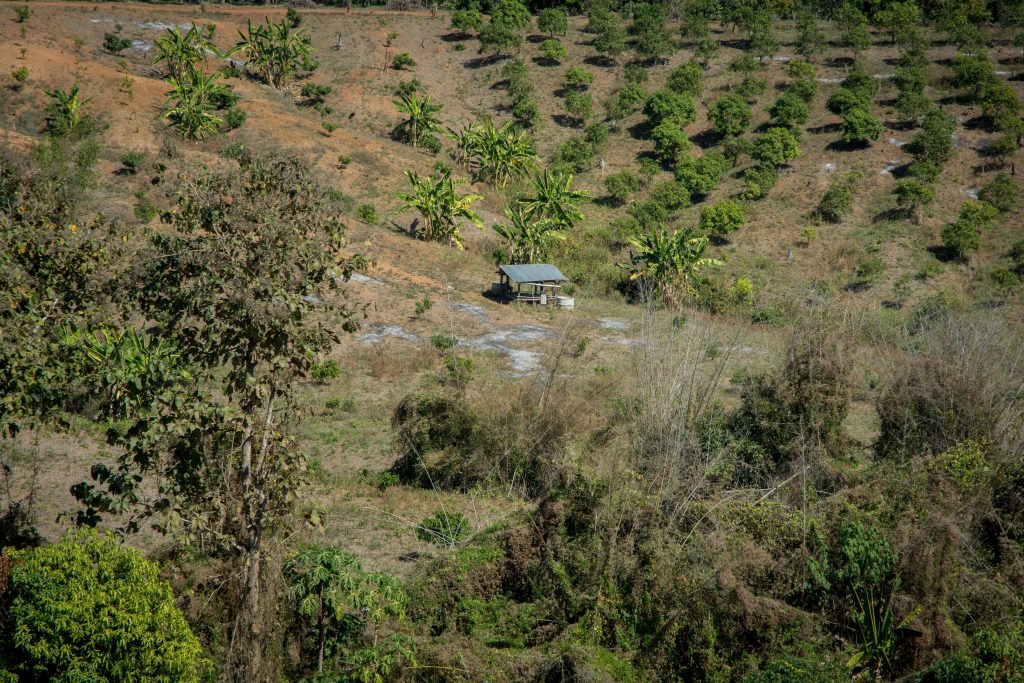
Farmers and local communities have co-existed within and around the forest reserves of northern Thailand for many years – long before state officials came into the picture. Many of them, who are too poor to legally own any of these lands, have been driven out of the areas they used to grow crops and sustain their livelihoods.
“There is still conflict between locals and officials regarding the forest, because the way it is managed is that there is an iron rule that you cannot go into any of these areas for any personal benefit or gains,” Tara told Thai Enquirer on Thursday.
But this conflict of interest is also hardly new. Numerous reports and cases have been filed over the past years by local communities and ethnic groups who have been displaced from their ancestral land due to state intervention, most notably recently with the case surrounding the ethnic Karen people of Bang Kloi. Indigenous Karen communities have been displaced from their ancestral homeland in the Kaeng Krachan forest complex in Thailand since 1996, and they continue to be prosecuted by the state.
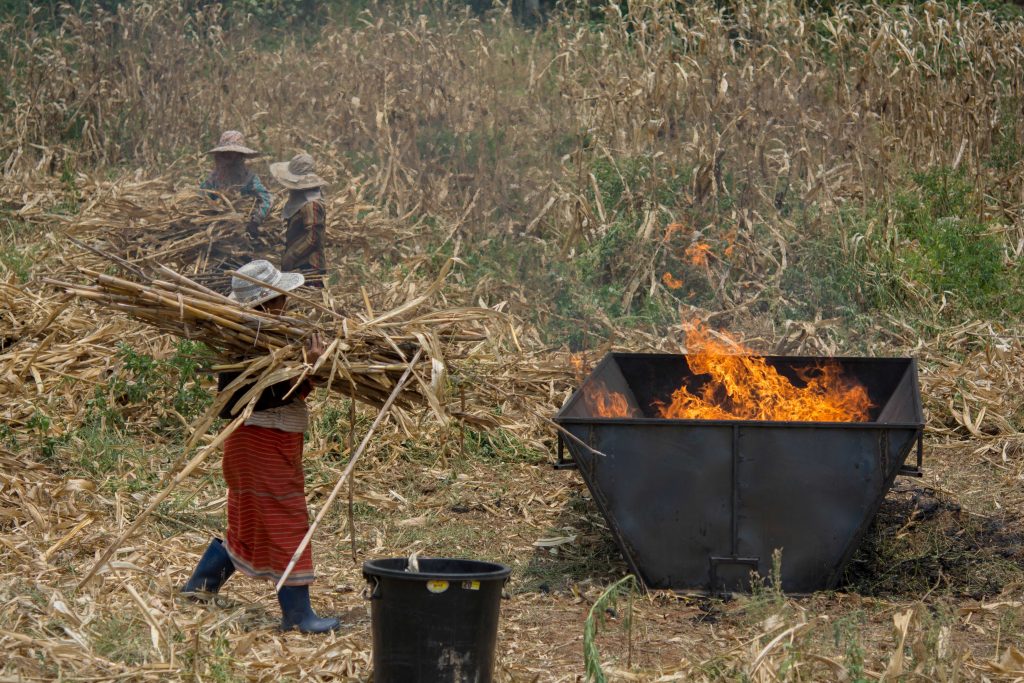
Another factor, Tara adds, is in how nearby villages may not have managed their fires very well, causing the flames to spread to the forest.
“This is not a straightforward problem – that the locals all of a sudden want to go inside and burn the forest – it is complex and systemic. It cannot be solved by just limiting and controlling people from coming in and out,” added Tara.
“This is a very delicate issue. By no means am I siding with the perpetrators, but if we investigate and find out why they did the things that they do – then we will reach a more sound understanding of the entire issue.”
Stephen Elliott, an Associate Professor and Co-founder of Chiang Mai University’s Forest Restoration Research Unit, echoed similar sentiments. He noted how there is currently “tremendous conflict going on, between government officials and people living in national forests,” and how authorities continue to “clear out locally operated tourism resorts in national parks.”
Of centralization, decision-making power, and capital
One of the root causes of the problem, Tara noted, is in how centralized and concentrated the Thai bureaucracy is in handling provincial and local issues. Any decisions in the north have to be processed and approved by officials in the capital.
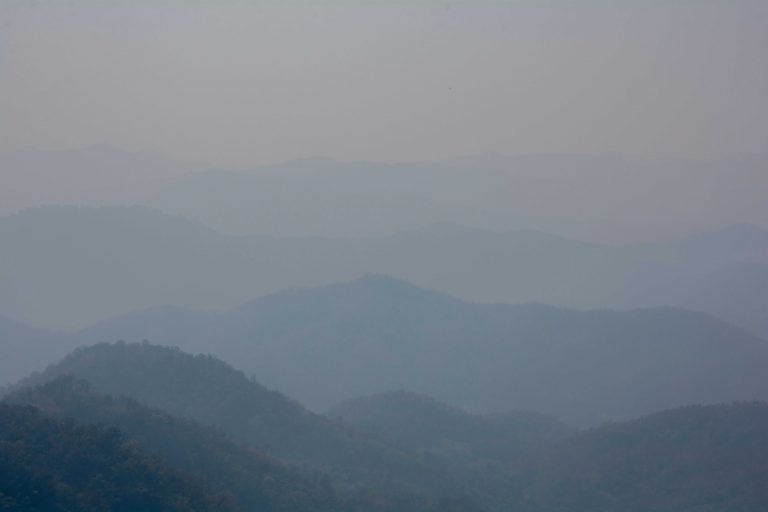
Smog blankets over northern Thailand. Photo courtesy of Marisa Marchitelli
“I think that we will continue to face the same issue. We are investing more resources and efforts into these areas, but ultimately all decisions will have to be made by the ministries in Bangkok,” he explains. “This top-down approach is an issue because for instance, if the Chiang Mai governor wants to announce that there is a crisis of air pollution in the province, there needs to be a long-winded process to officially announce it as such.”
“Also, PM2.5 and the smog crisis are not considered official natural disasters under Thai law.”
If the government allows for local elections to happen in provinces such as Chiang Mai and Mae Hong Son, then locals in the north will be able to have a say in electing a governor or official that will truly represent their needs. Budgeting and taxing, therefore, can remain in the city and people will be able to make decisions for themselves.
“The governor will then have full power in handling and addressing the situation,” said Tara. “Instead of always running to the power center, it will be localized and lead to a better solution.”
Another problem is financing. Compared to other areas and sectors in the country, little budget has been placed toward forest restoration efforts by the Thai government. For Tara, the lack of priority and financial support placed toward the crisis are “incomparable” when looking at the overall budget of the government.
“This makes it almost impossible for officials, such as the fire brigade extinguishers, to even afford their daily living expenses.”
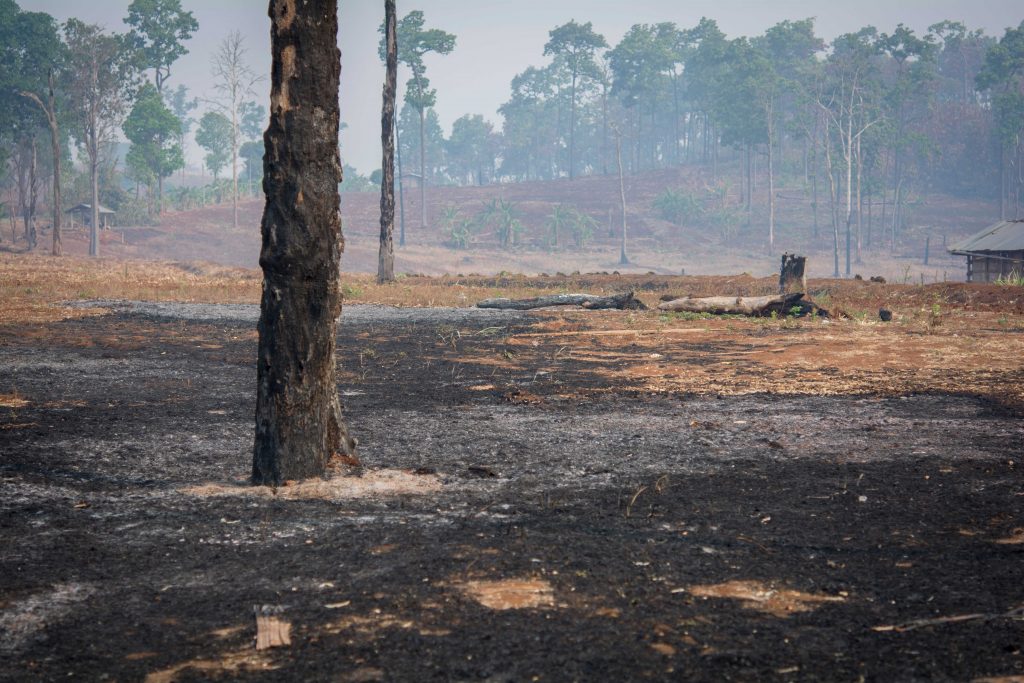
Carbon emission trading – a possible alternative
“In Thailand, all we can do is react on a local scale,” noted Elliott. “Education and lots of outreach and support for rural communities are needed.”
One thing that the professor believes might help the situation enormously, is if local people could market the carbon value of restoring forests. “Our research is beginning to show that this could yield up to three times more income than growing corn over 14 years, after planting trees, provided the government could develop an equitable carbon trading mechanism and start-up loans were made available to farmers at reasonable interest rates”, he said. Corn is one of the drivers of deforestation in the north. It offers faster but very low financial rewards.
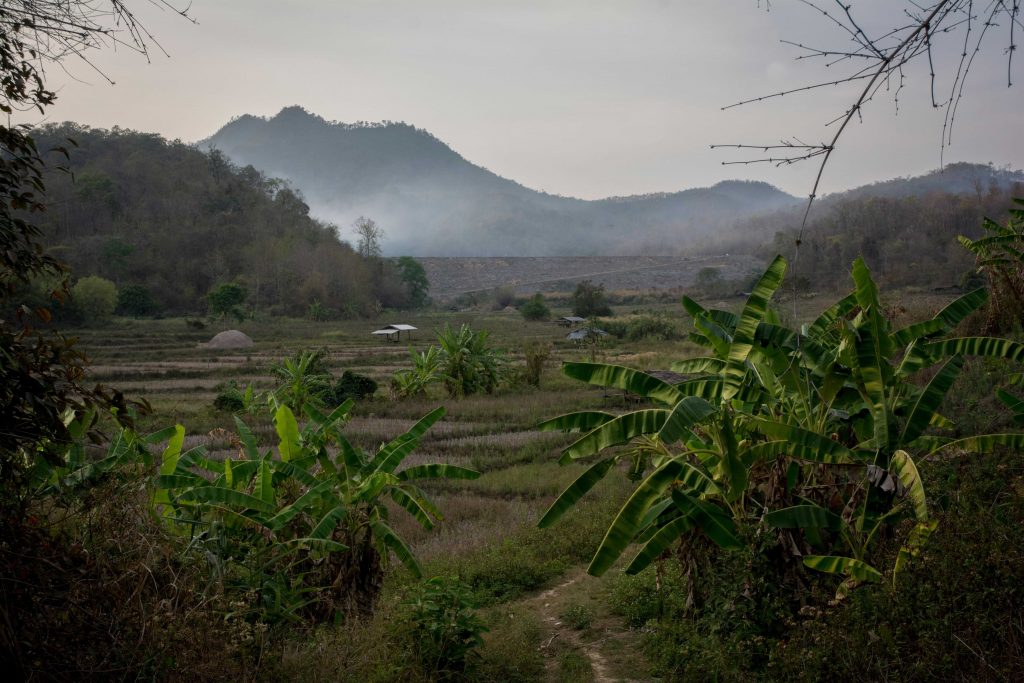
However, the carbon market, needed to turn the carbon value of forests into cash income for villagers, does not yet exist. “Developing a carbon market in Thailand requires political will,” the professor noted. “Farmers would need access to cheap bank loans to cover tree planting costs and support their families until break-even occurs 6-9 years after tree planting – because forest carbon takes many years to accumulate and really takes off around year six.” However, such a mechanism would encourage farmers to fiercely defend forests against fires, since carbon (and therefore income) is lost from the system when the forests burn.
“But to bring this about, appropriate government policies would be needed along with banks with long-term and sustainable views.”
“However, if it could be achieved, villagers would have more disposable income for health and education,” explained Elliott. “Air pollution would be reduced along with associated health problems, such as respiratory diseases. It would be win-win situation for the environment, health and rural livelihoods.”